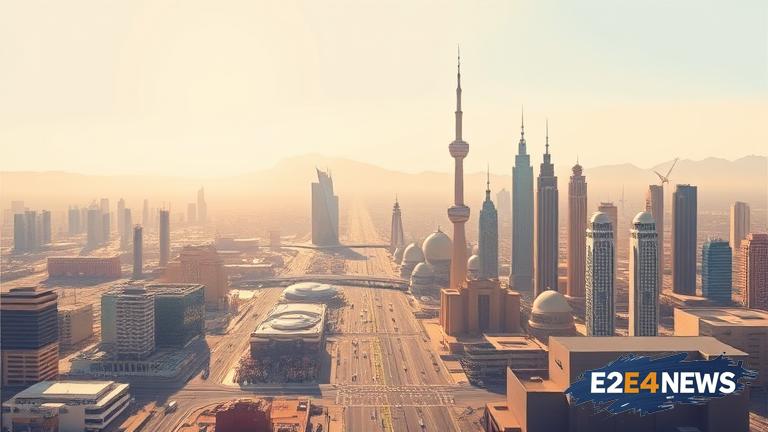Saudi Arabia’s economy has been undergoing a significant transformation in recent years, driven by the government’s Vision 2030 plan. The plan aims to diversify the country’s economy, reduce its dependence on oil exports, and develop new sectors such as tourism, entertainment, and renewable energy. As a result, the country has seen a significant increase in foreign investment, with many international companies setting up operations in the kingdom. The tourism sector, in particular, has seen a major boost, with the government investing heavily in infrastructure and marketing campaigns to attract visitors from around the world. The Red Sea Project, a massive tourism development on the kingdom’s west coast, is one of the most ambitious projects in the region, with plans to create over 50,000 jobs and attract millions of visitors each year. The entertainment sector is also experiencing a major boom, with the government investing in new cinemas, theaters, and other entertainment venues. The kingdom has also seen a significant increase in the number of international events and festivals, including the MDL Beast festival, which attracted thousands of visitors from around the world. In addition to these developments, the government has also been investing in renewable energy, with plans to generate 50% of the country’s electricity from renewable sources by 2030. The kingdom has also seen a significant increase in the number of startups and small businesses, with many entrepreneurs taking advantage of government support and funding to launch new ventures. The government has also been working to improve the business environment, with reforms aimed at reducing bureaucracy and increasing transparency. As a result, the country has seen a significant increase in foreign investment, with many international companies setting up operations in the kingdom. The economy is also expected to benefit from the government’s plans to increase the private sector’s contribution to GDP, with a target of 65% by 2030. The government has also been investing in education and training, with a focus on developing the skills and knowledge of the Saudi workforce. This includes the establishment of new universities and research centers, as well as programs to support entrepreneurship and innovation. The kingdom has also seen a significant increase in the number of women in the workforce, with the government implementing policies to support female employment and entrepreneurship. The economy is also expected to benefit from the government’s plans to develop the country’s infrastructure, including the construction of new roads, railways, and airports. The kingdom has also seen a significant increase in the number of international partnerships and agreements, with the government signing deals with countries around the world to increase trade and investment. The government has also been working to improve the country’s regulatory environment, with reforms aimed at reducing bureaucracy and increasing transparency. Overall, Saudi Arabia’s economic boom is expected to continue in the coming years, driven by the government’s reforms and investments in key sectors. The country is expected to become a major player in the global economy, with a diverse range of industries and a highly skilled workforce. As the kingdom continues to develop and grow, it is likely to become an increasingly important destination for foreign investment and tourism. With its unique culture and history, Saudi Arabia is also expected to become a major hub for international events and festivals, attracting visitors from around the world. The kingdom’s economic boom is also expected to have a positive impact on the wider region, with many countries in the Middle East and North Africa looking to Saudi Arabia as a model for economic development and diversification.
